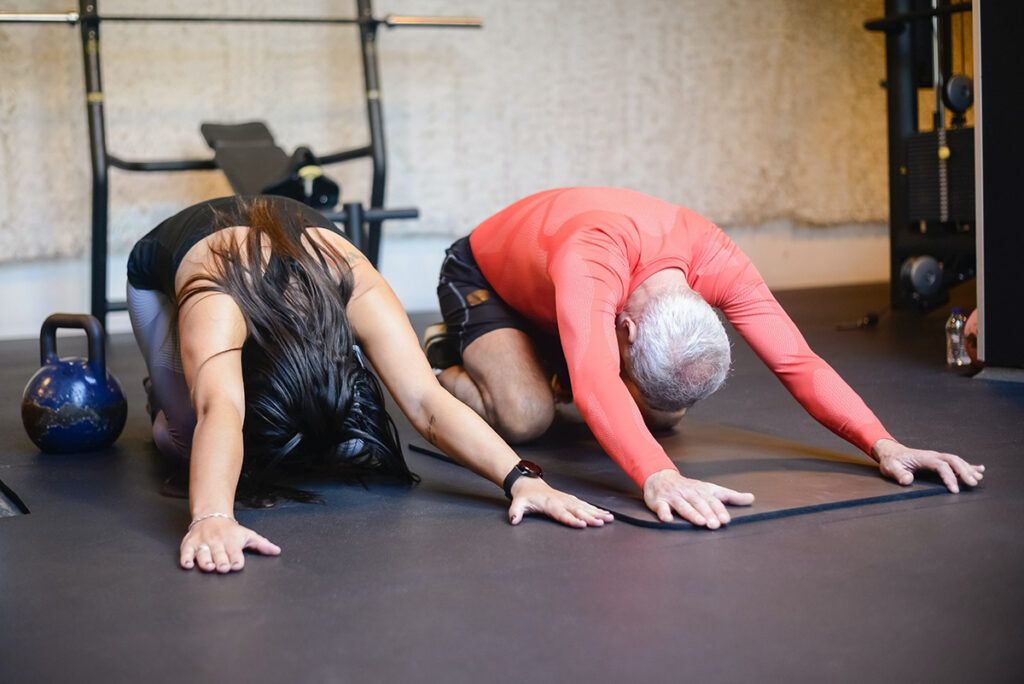
New Research is Showing That Physical Strength Could Retard Cognitive Decline
Okay, so we’re fed the same old story about exercise helping preserve mental acuity and retard cognitive decline. We’re told that among other benefits, it enables blood to nourish the brain more efficiently. Yeah, but if it’s so great, why isn’t everyone compelled to follow a dutiful, daily cardio/strength training regimen? It’s simple: life gets in the way. For most of us, days are fraught with work deadlines, family responsibilities, and a host of other stuff that consumes our waking hours. There’s a bigger reason we don’t keep to an exercise schedule: We don’t see the results on our brains. But, here’s the payoff; as we build muscle mass in the parts of our body we can see, it helps improve resistance in our brain to the ravages of dementia. Beautiful muscle definition in our arms equals a healthier brain.
We have to take the benefit of muscle strength on faith. Unless someone we care about is sick with a cognitive disease, you can’t know the grief and suffering that you and that person are in for. Alzheimer’s Disease and dementia have attacked some 50 million older people worldwide, and as we live longer it’s going to get worse.

But here’s the really good news:
A recent Journal of the American Medical Association article – Lower Muscle Mass Tied To Steeper Cognitive Decline, Study Suggests – featured an 8,000-subject Canadian research study whose outcome suggested a possible link between lower muscle mass in older adults and greater levels of cognitive decline. It went on to suggest that monitoring muscle mass may offer a potential area for intervention to help prevent cognitive impairment. While the study results showed a number of variables that require much more study, it opens an avenue for further exploration of the role that physical fitness may play in brain health. Those with higher muscle mass levels may have better physical and cardiovascular fitness leading to more blood flow to the brain, which can boost executive functioning, according to the researchers. Exercise—and in particular — the contraction of muscles sparks the release of myokines, which can have anti-inflammatory benefits, supporting brain health.
Anyone who’s been in the trenches with loved ones or friends suffering the ravages of Alzheimer’s Disease and other forms of dementia recognizes the shocking devastation that robs loved ones and friends of their minds and personalities.

As research in this area continues to ramp up, scientists are finding more evidence that may link physical strength to physical decline:
- A study in the July 2017 issue of European Geriatric Medicine showed an association between increased upper-body and lower-body muscle strength and a greater ability to receive, store, and process information among older adults with an average age of 66.
- According to a recently released study in ScienceDaily, “People who are more physically fit are less likely to develop Alzheimer’s Disease than people who are less physically fit.” It is not an all-or-nothing proposition. The study’s author Edward Zamrini, MD, of the Washington VA Medical Center in Washington, D.C., and a member of the American Academy of Neurology stressed that people can work toward making incremental changes and improvements in their physical fitness and hopefully that will be associated with a related decrease in their risk of Alzheimer’s years later.
- A Mayo Clinic article, Alzheimer’s Disease – Can Exercise Prevent Memory Loss? states that it can possibly do so. It appears that regular physical activity benefits the brain. Physical activity is one of the known modifiable risk factors for dementia. Plus, regular exercise helps combat other Alzheimer’s disease risk factors, such as depression and obesity. According to the article’s author, Jonathan Graff-Radford, M.D., at the very least, exercising several times a week for 30 to 60 minutes may:
- Keep thinking, reasoning, and learning skills sharp for healthy individuals
- Improve memory, reasoning, judgment, and thinking skills (cognitive function) for people with mild Alzheimer’s disease or mild cognitive impairment
- Delay the start of Alzheimer’s for people at risk of developing the disease or slow the progress of the disease
- Increase the size of the part of the brain that’s associated with memory formation (hippocampus)
None of this is worth not doing. If you’re hedging your bets, hedge them on the side of spending time with weight-bearing exercise and cardio. If we see a growing body of evidence that loss of muscle mass contributes to dementia and not the other way around, it may persuade the human race that it needs to stay fit.
We want to hear from you, so feel free to share tips, ideas, and resources for seniors with Grannybooster. Email me, Maris Somerville, at [email protected]


Leave a Reply